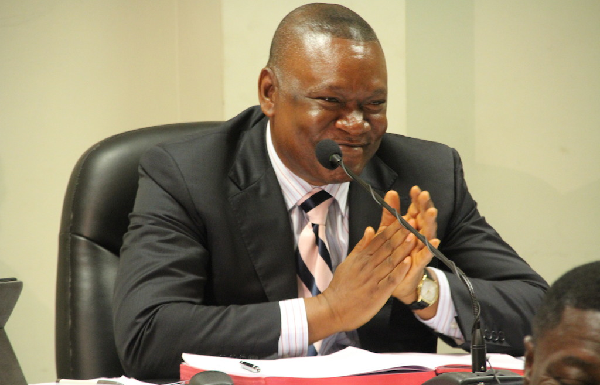Justice Senyo Dzamefe, nominee for the Supreme Court, presented his vision for a more accessible and efficient justice system during his vetting before Parliament’s Appointments Committee. He argued that effective judicial practice requires not just technical expertise, but also a significant measure of practical wisdom—an understanding of context, fairness, and the real-life impact of legal decisions, especially for ordinary Ghanaians who often navigate the court system without legal representation. He quantified this perspective, stating that law is 20% technical knowledge and 80% wisdom, emphasizing the importance of good judgment over mere academic brilliance in achieving just and balanced outcomes. This philosophy underscored his subsequent proposals for reforming the judicial system, focusing on accessibility, efficiency, and the integration of diverse perspectives.
A major thrust of Justice Dzamefe’s proposals centered on expediting the judicial process. He advocated for the implementation of fixed timelines for case resolution, suggesting a three-month limit for criminal trials and a six-month limit for civil cases. To facilitate this accelerated pace, he recommended the adoption of technological advancements, including artificial intelligence for real-time transcript generation and virtual court sessions to reduce travel costs for litigants. He also highlighted the need to establish more courts nationwide to alleviate the current case burden and improve access to justice, responding directly to concerns raised by MP Elijah Akugre regarding the limited reach of the judicial system. This commitment to efficiency reflects his belief that justice delayed is justice denied.
Addressing specific legal areas, Justice Dzamefe clarified the court’s approach to property disputes, emphasizing the principles of fairness and the application of relevant laws. In divorce cases, he stressed equitable distribution of jointly acquired property. In inheritance matters, he affirmed the court’s reliance on PNDC Law 111 or valid wills, citing the case of Agyei v. Nartey to illustrate the court’s intervention to ensure reasonable provision. These examples demonstrate his commitment to applying legal principles in a way that ensures equitable outcomes and protects the rights of all parties involved.
A unique aspect of Justice Dzamefe’s vision involves incorporating lay perspectives into the judicial process. He advocated for the revival of public tribunals, arguing that the involvement of laypersons enhances both fairness and legitimacy within the system. He underscored the value of grassroots wisdom, asserting that laypeople bring a unique understanding to cases and are less susceptible to intimidation or manipulation, a point he made in response to MP Patrick Yaw Boamah. This proposal reflects a belief in the importance of community involvement and the potential for diverse perspectives to enrich the pursuit of justice.
Beyond operational reforms, Justice Dzamefe also addressed systemic issues, particularly the judiciary’s financial dependence on Parliament. While acknowledging the judiciary’s legal and administrative independence, he argued that true autonomy is undermined without fiscal freedom. He pointed out that Parliament’s control over the judiciary’s budget creates a potential vulnerability, compromising the institution’s ability to operate efficiently and maintain its integrity. This observation, in response to a question from MP Hassan Tampuli, highlights a critical aspect of judicial reform that often goes unaddressed. Financial independence, he argued, is essential for ensuring that the judiciary can function without external pressures or influence.
Justice Dzamefe’s extensive experience, having served on the bench in Sekondi, Swedru, and Accra, along with his tenure as President of the Association of Magistrates and Judges, positions him as a seasoned legal mind with a deep understanding of the challenges facing the Ghanaian judicial system. His nomination comes at a crucial juncture, as calls for judicial reform and faster justice delivery resonate throughout the country. His vision, encompassing practical wisdom, technological advancement, and systemic change, presents a roadmap for a more accessible, efficient, and equitable justice system for all Ghanaians. His emphasis on the human element of law, the importance of context, and the integration of diverse perspectives offers a promising path towards a more just and equitable society.


